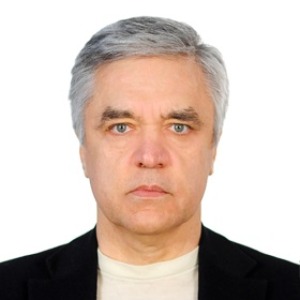Biography:
Sergey Suchkov was born in the City of Astrakhan, Russia, in a family of dynasty medical doctors. In 1980, graduated from Astrakhan State Medical University and awarded with MD. In 1985, Suchkov maintained his PhD as a PhD student of Sechenov University and Institute of Medical En-zymology. In 2001, Suchkov maintained his Doctor Degree at the National Institute of Immunology, Russia. From 1989 through 1995, a Head of the Lab of Clinical Immunology, Helmholtz Eye Re-search Institute in Moscow. From 1995 through 2004 - a Chair of the Dept for Clinical Immunology, Moscow Clinical Research Institute (MONIKI). In 1993-1996.
At present, Dr Sergey Suchkov, MD, PhD, is:
Professor in Medicine & Immunology, Director for Center for Biodesign of N.D. Zelinskii Institute for Organic Chemistry of the Russian Academy of Sciences, Moscow, Russia
R&D Director, InMedStar, Russia-UAE
Senior Scientific Advisor of China Hong Kong Innovation International Business Association, Hong Kong
Member, New York Academy of Sciences, USA
Member: EPMA (European Association for Predictive, Preventive and Personalized Medicine), Brussels, EU
Member, ISPM (International Society for Personalized Medicine), Japan
Member, PMC (Personalized Medicine Coalition), Washington, USA
Member, AMEE (Association for Medical Education in Europe), Centre for Medical Education, Dundee, Scotland
Member, ACS (American Chemical Society), Washington, DC, USA
Member, AHA (American Heart Association), Dallas, TX, USA
Member, ARVO (The Association in Research in Vision & Ophthalmology), Rockville, MD, USA
ISER (International Society for Eye Research), Anchorage, AK USA
Secretary General, United Cultural Convention (UCC), Cambridge, UK.




Title : Personalized and Precision Medicine (PPM) through the view of biodesign-inspired translational research: An option for clinical oncologists, caregivers, and consumers to realize the potential of genomics-informed care to secure human biosafety
Title : Personalized and precision oncology via integrating genomics, pathology-related modeling, and IT-assisted approaches to prevent, treat, and cure cancer and its complications